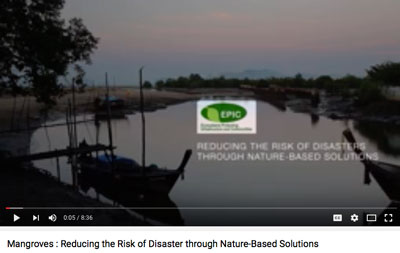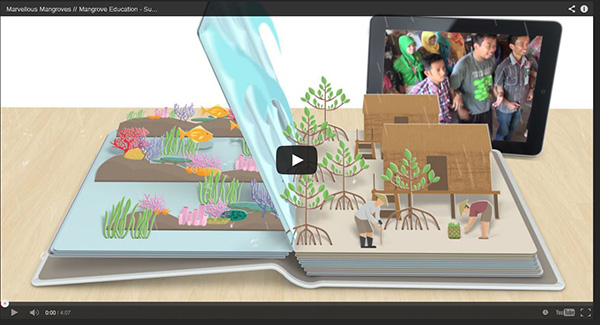|
The MAP News |
|
|
FEATURE STORY
Body Shop Foundation agrees to support MAP’s CBEMR  UK – In another vote of confidence for the scientific and proven results of its restoration projects, the Trustees of The Body Shop Foundation recently agreed to support Mangrove Action Project (MAP) with a substantial donation. The grant is towards the CBEMR – Community –Based Ecological Mangrove Restoration project to restore the mangroves on Kho Klan Island in the Krabi River Estuary. The Body Shop Foundation is a charitable company who operate closely with The Body Shop International. The group gives money to innovative, global projects working for social and environmental change. Since they began in 1989, they’ve funded thousands of projects across the world, donating just over £21 million. Through their funding, they’ve given support, awareness and vital funds for community based charities and organisations that strive to protect the planet, its people and the animals that share it with us. The Body Shop’s determination to protect, care for and cherish our planet with all its wondrous species is the reason they get out of bed every morning and fuels them into going that extra step every day. We think they’re amazing. Seriously amazing. READ MORE ASIA A new power plant could devastate the world’s largest mangrove forest. 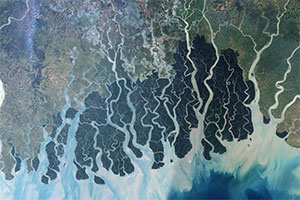 BANGLADESH - The planet’s largest mangrove forest could be facing serious trouble in the form of two new coal-fired power plants, environmentalists say — and they’re urging the United Nations to draw greater attention to the issue. A handful of environmental groups, including Friends of the Earth, the Sierra Club and 350.org, have cumulatively collected 50,000 signatures on a petition just submitted to the United Nations Educational, Scientific and Cultural Organization (UNESCO) asking that the Sundarbans — a region of Bangladesh including a designated World Heritage Site — be placed on the official List of World Heritage in Danger. Meanwhile, activists continue to lobby against the construction of the power plants. The petition was submitted ahead of this year’s meeting of the World Heritage Committee, which convened in Istanbul last week. Meanwhile, progress on the Rampal power plant — the proposed project garnering the greatest amount of concern in Bangladesh — continues to move forward. Last week, local media reported that an official agreement had been signed awarding India’s state-run Bharat Heavy Electricals Ltd. an engineering and construction deal on the Rampal project, paving the way for its continued development. READ MORE MAP’s EPIC Mangrove video: A global success! THAILAND - Back in December we reported on the filming of a new Ecosystems Protecting Infrastructure Communities (EPIC) www.iucn.org/EPIC video by MAP’s visual communications consultant Leo Thom, and Tom Plowden, a British wildlife photographer based in Singapore. The two of them spent 6 days in the Krabi region of Southern Thailand gathering footage, before a lengthy post-production process by Leo. The video has since been completed and by now many of you may have had the opportunity to see the fantastic final product: “Reducing the Risk of Disaster through Nature-Based Solutions - Mangroves”. The video highlights the importance of restoring abandoned shrimp ponds of which there are an estimated 250,000 hectares in Asia. Formerly, these ponds were healthy mangrove ecosystems providing a long list of goods and services to their local communities and locking up vast quantities of carbon. READ MORE Thailand's Shrimp Farms Threaten Rare 'Fishing Cats' THAILAND - Normally, cats avoid water like the plague, but Thailand's "fishing cats," with their partially webbed feet and pointed heads evolved for diving, are built for hunting in the mangrove swamps and streams. But this rare breed's entire future could depend on the decisions made in, of all places, the frozen food section of the supermarket. Biologist Namfon Cutter, who has researched these fiercely private animals for eight years, said she has only once seen one in the wild with her own eyes."In a way, that kind of makes it even more exciting, because you want to give them some respect," Cutter said. Cutter and her team of researchers head out in the jungle to monitor the fishing cats through camera feeds and radio collars. When they find tracks, they set up a camera and put out a trap baited with a piece of chicken. Cutter is now tracking and studying dozens of these fishing cats through camera feeds and radio collars. Fishing cats only live in South and Southeast Asia and there are only several thousand of them left in the wild. One of the big culprits in their potential extinction is shrimp farms. READ MORE AFRICA West African Coastal Towns Swallowed by Ocean IVORY COAST - Rising sea levels and coastal erosion threaten the homes and livelihoods of hundreds of thousands of people across West Africa. Grand-Lahou, an Ivorian tourist destination, is among the areas slowly being washed away. The waves are swallowing the coastline of Grand-Lahou’s old town, located about 100 kilometers west of Abidjan, at a pace of 1-to-2 meters a year. Eugène Koffi has spent his entire life on a shrinking patch of land called Lahou-Kpanda, which is situated between the sea and a lagoon. "The sea used to be back there, two kilometers away," said Koffi, pointing his finger at the horizon. Today, it comes up to just a few meters away from where he is standing. "There used to be people living here," he adds. "There used to be coconut trees." READ MORE AMERICA Can Land-Based Fish Farms Solve Farmed Seafood Woes? USA - More than half the seafood eaten globally is now farmed. And yet for some, aquaculture conjures up images of escaped fish, crowded pens, antibiotics, and ocean pollution in Asia, where nearly 90 percent of today’s aquaculture takes place. Now some entrepreneurs are bringing aquaculture on land. In the process, many hope to find a sustainable solution to the growing demand for a low-input, clean source of protein. One of them is Tracey Carrillo, an agronomy professor at New Mexico State University. Carrillo initially started producing chemical-free shrimp as part of an experiment to see if they could be fed with organic cottonseed protein, an underutilized part of the cotton crop. When he had an abundance of shrimp on his hands, eager locals lined up around the block.Quixotic fish farm tilapia “We’d send an email out to the college and the response was overwhelming,” he said. “[It was] the novelty of ‘Whoa, they’re growing fresh shrimp in the desert.’” READ MORE Choosing sustainable shrimp USA - Shrimp remains the most popular seafood in the United States: the typical American consumes around four pounds a year, adding up to more than 1 billion pounds. Almost 90 percent is imported, largely from Southeast Asia and Latin America. Outside of the United States and Canada, both farmed and wild shrimp carry a destructive burden, making it difficult for conscientious eaters to find shrimp that meets their values. Shrimp aquaculture can have an extraordinarily negative impact on the environment, particularly critical mangrove ecosystems that are clear cut to make way for shrimp ponds. These ponds have high stocking densities and, in an effort to keep the shrimp healthy, farmers often utilize a wide array of chemicals to control pathogens. If any chemical or bacterial contamination is found on shrimp imports, they're not allowed to enter the United States. But the Food and Drug Administration (FDA) only inspects 1 to 2 percent of all seafood every year, meaning tainted shrimp likely is ending up in American kitchens. The FDA has ramped up testing recently and, subsequently, refusals of imported shrimp have spiked. READ MORE OCEANA Shocking images' reveal death of 10,000 hectares of mangroves across Northern Australia AUSTRALIA - Close to 10,000 hectares of mangroves have died across a stretch of coastline reaching from Queensland to the Northern Territory.International mangroves expert Dr Norm Duke said he had no doubt the "dieback" was related to climate change. "It's a world-first in terms of the scale of mangrove that have died," he told the ABC. Dr Duke flew 200 kilometres between the mouths of the Roper and McArthur Rivers in the Northern Territory last month to survey the extent of the dieback. He described the scene as the most "dramatic, pronounced extreme level of dieback that I've ever observed". Dr Duke is a world expert in mangrove classification and ecosystems, based at James Cook University, and in May received photographs showing vast areas of dead mangroves in the Northern Territory section of the Gulf of Carpentaria. READ MORE Climate art: Tuvalu plan for giant mangrove QR code TUVALU - Vincent Huang outlines plans for world’s first giant QR code from mangroves to highlight threat of rising seas to Pacific Islands. The tiny Pacific island nation of Tuvalu has revealed plans to plant a mangrove forest in the shape of a QR code in a bid to highlight its vulnerability to climate change. It’s the idea of Taiwanese artist Vincent Huang, who has long worked with Tuvalu’s government to draw global attention to the country’s struggle against rising sea levels and erratic rainfall. In a statement sent to media, Huang said he will start planting mangrove trees at Funafala islet next month. When complete, he said people could use their QR readers to scan the mini forest and read about the impacts of climate change around the world. READ MORE The State Of The World’s Coral Reefs Is Getting Dire AUSTRALIA - Warmer-than-usual waters have been causing major stress for corals around the world for the past two years, and they aren’t likely to get a break anytime soon. The International Coral Reef Symposium held recently in Hawaii, scientists from the National Oceanic and Atmospheric Administration (NOAA) unveiled projections that show that water temperatures will be high enough in the coming months to carry the global bleaching event into a third year. Already, the bleaching event, which started in 2014, is the longest in global history — stretching into a third year would be “unprecedented,” NOAA says. Bleaching is a grave threat to coral reefs. Corals, which are made up of tiny polyps that live symbiotically with photosynthetic algae, expel that algae when they get stressed by things like pollution or too-warm or too-cold water. This algae gives the coral its color, so when it’s expelled, the coral turns white. Its photosynthetic abilities also provide food for the coral, so without the algae, the coral is greatly weakened; if ocean temperatures don’t fall quickly enough for the algae to recolonize the coral, it can die. READ MORE Rising sea shocks Pacific's Kiribati THAILAND - One clear bright day last winter, a tidal surge swept over an ocean embankment here in the remote, low-lying island country of Kiribati, smashing through the doors and windows of Betio Hospital and spewing sand and debris across its maternity ward. Beero Hosea, 37, a handyman, cut the power and helped carry frightened mothers through the rubble and water to a nearby school. "If the next one is combined with a storm and stronger winds, that's the end of us," he said. "It's going to cover this whole island." For years, scientists have been predicting that much of Kiribati may become uninhabitable within decades because of an onslaught of environmental problems linked to climate change. And for just as long, many here have paid little heed. But while scientists are reluctant to attribute any specific weather or tidal event to rising sea levels, the tidal surge last winter, known as a king tide, was a chilling wake-up call. "It shocked us," said Tean Rube, a pastor with the Kiribati Uniting Church. "We realised, OK, maybe climate change is real." READ MORE LAST WORD(S) London protest against Rampal power plant deal Dear Friends, It’s very shocking that the people’s urge to abandon the coal based power plant in Rampal, an adjacent area of the world’s largest mangrove forest, Sundarbans is being ignored. The Government of Bangladesh has signed an agreement with India’s state run Bharat Heavy Electrical Ltd to implement the Rampal Power Plant. The National Committee to Protect Oil Gas and Mineral Resources in Bangladesh (NCBD) will march towards the Prime Minister’s Office on the 28th July 2016 to protest against the deal. In solidarity with the protesters in Bangladesh, the UK branch of NCBD will hold a protest meeting at Altab Ali Park on the same day, at 6.30pm on 28 July. Please join us along with your friends and raise your voice against this destructive Rampal power plant to protect the world’s largest mangrove forest, environment, ecology and species. Regards, A.S.K. Masroor, NCBD, UK branch. Rumana Hashem, PhD rowshonrumana@gmail.com, r.hashem@uel.ac.uk Skype: rumanahashem Twitter: @RumanaHashem BACK TO TOP Not yet a subscriber? Click here to subscribe. Please cut and paste these news alerts/ action alerts on to your own lists and contacts. Help us spread the word and further generate letters of concern, as this can make a big difference in helping to halt a wrongdoing or encourage correct action.
|
Action Alerts:Tell the Ex-Im Bank: Don't let Big Coal wreck mangrove forests
|
Mangrove Action ProjectClick here to view past newsletters |
|
Search News Archive
Saturday, July 23, 2016
MAP News Issue #395, July 23, 2016
MAP’s EPIC Mangrove video: A global success!
 | |
| EPIC Project Advisory Committee meeting |
By MAP Intern,
Amber Bowes & Jim Enright, Asia Coordinator
Back
in December we reported on the filming of a new Ecosystems Protecting Infrastructure Communities
(EPIC) video by MAP’s visual communications consultant
Leo Thom, and Tim Plowden, a British wildlife photographer based in Singapore. The
two of them spent 6 days in the Krabi region of Southern Thailand gathering
footage, before a lengthy post-production process by Leo. The video entitled: Mangroves:
Reducing the Risk of Disaster through Nature-Based Solutions has since been completed and the fantastic
short documentary is available both in English and Thai while being shown at a
wide variety of events and locations.
The
video highlights the importance of restoring abandoned shrimp ponds of which there
are an estimated 250,000 hectares in Asia. Formerly, these ponds were healthy
mangrove ecosystems providing a long list of goods and services to their local
communities and locking up vast quantities of carbon. MAP has been using the Community-Based
Ecological Restoration (CBEMR)
methodology to restore the full biodiversity of the mangroves to these
abandoned shrimp ponds and to allow the EPIC project to showcase the disaster
risk reduction (DRR) importance of mangroves. Many communities, such as those
in coastal Southern Thailand, are suffering from the intensification and increased
frequency of tropical storms. Additionally, climate change induced sea level
rise has resulted in serious erosion affecting infrastructure, salinization of
agriculture lands and loss of land. All these challenges facing local communities
have been exacerbated by the wide-scale destruction of local mangroves. With
resources like this short documentary, MAP is raising awareness and promoting IUCN’s
Eco-DRR concept of “Nature-based solutions” of this issue
and able to disseminate information to a wide range of people from all over the
world.
EPIC mangrove video being displayed on large screen (lower
right) at the IUCN headquarters in Gland, Switzerland
We are pleased to report that the video has received
a considerable amount of attention since its release and has been shown to a
number of government officials in Thailand to promote further mangrove
conservation and improve local livelihoods. Additionally, the film is showing
at a wide range of locations and events in 2016 with more to be confirmed:
 |
| EPIC mangrove video displayed (lower right) at the IUCN headquarters in Gland, Switzerland |
· “Muddy Mangrove Movie-fest” at the Australian Mangrove & Saltmarsh Network Conference, Darwin, Australia. May 5th, 2016
· Reception of IUCN Headquarters, Gland, Switzerland.
2016.
· The
Commission on Ecosystem Management (CEM) booth at the IUCN World Conservation Congress, Hawaii, USA. September 1st
2016.
· Wildlife Vaasa International Wildlife Film
Festival, Vaasa,
Finland. September 28th to October 2nd 2016.
October 14th
to 16th 2016.
·
International Festival of Sustainable Development Films - Ekotopfilm
2016 in Czech Republic, Fall 2016.
MAP thanks our project holders and funders because
without the support of IUCN, the EPIC project holder, and funding from the German
Federal Ministry for the Environment, Nature Conservation and Nuclear Safety’s
International Climate Initiative (BMUB-ICI) this project would not have been
possible.
If
you haven’t seen the 8 min. video you can find it on MAP’s YouTube channel here:
Mangroves: Reducing the Risk of Disaster through Nature-Based Solutions (English)
Mangroves: Reducing the Risk of Disaster through Nature-Based Solutions (English)
=========================
Thursday, July 7, 2016
MAP News Issue 394 - July 9, 2016
|
The MAP News |
|
|
FEATURE STORY
New life in old shrimp ponds 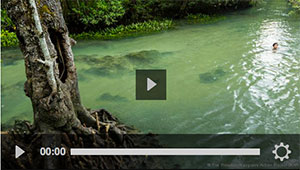 THAILAND - Mangroves were cleared in many places in Thailand to make way for shrimp ponds. But these days, many of these ponds lie idle. An initiative is trying to bring back the mangroves - which would benefit locals as well.Thick mangrove forests once grew on Thailand's Kho Klang island - but they were cleared, among other things to make way for shrimp farming ponds. The move had devastating consequences for biodiversity, but as shrimp farming is no longer profitable on the island, many ponds now lie idle. In her efforts to bring back the mangroves, environmental activist Jaruwan Enright has found a new ally: the island's imam and owner of some of the ponds. VIEW VIDEO ASIA Sprouting a hopeful future  THAILAND - Ms. Jaruwan Enright, the Mangrove Action Project’s Field Project Manager, was recently featured in a Deutsche Welle (DW) film for their Global Idea Series entitled “New life in old shrimp ponds.” Filming by Bastian Hartig took place in early June over 4 days on Klang Island in the Krabi River estuary where MAP’s Ecosystem Protecting Infrastructure and Communities (EPIC) project is based. The video is DW’s follow up to their article “Bringing devastated mangroves back to life” Jaruwan is heading the field implementation of MAP’s EPIC project which is demonstrating the use of Community Based Ecological Mangrove Restoration (CBEMR) to restore abandoned shrimp ponds back to biodiverse mangrove which will provide a green bio-shield to the vulnerable island communities in times of tropical storms or even a tsunami. If large numbers of island ponds are rehabilitated back to mangrove forest then Ecological Disaster Risk Reduction (Eco-DRR) will be achieved. This is a nature-based solution to climate change, which is causing sea-level rise and more intense and frequent tropical storm during the monsoon season. READ MORE Bangladesh coal plant threatens World Heritage mangrove: petition BANGLADESH - The world's largest mangrove forest, a World Heritage Site, should be listed as endangered due to a coal-fired power plant under construction in Bangladesh, urged a petition signed by 50,000 people and submitted to the UN recently. Classified by the UN's culture and science organ, UNESCO, in 1997 as a natural treasure, the Sunderbans which straddles the border of India and Bangladesh, provides a defence against storm surges and cyclones to some four million people in the region. At the same time, its 10,000 sq km (3,800 sq miles) expanse is home to some of the planet's most iconic threatened species, including a population of about 100 tigers and the Ganges river dolphin. The planned 1,320 Megawatt Rampal plant, a joint project by India and Bangladesh, would be powered each year by nearly five million tons of coal transported by boat along the ecosystem's fragile waterways, boosting the risk of oil and coal spills. READ MORE Mangrove Loss in Indonesia 2000 – 2012 Results Alarming INDONESIA - Between 2000 and 2012, Indonesia lost 3.11% of its mangrove forest area (Hamilton and Casey 2014). This is substantially higher than the 1.97% global average. This is problematic as Indonesia contains approximately 28% of the world’s mangrove forest. To put this in perspective, Indonesia’s 21st Century mangrove loss is more mangrove forest than actually exists in all but 20 of the top 100 mangrove-holding nations. Mangrove loss in Indonesia is responsible for just under half of all global mangrove deforestation that has occurred in the 21st Century. Earlier research indicates aquaculture, agriculture, and urbanization as reasons for mangrove losses in Indonesia pre-2000, but post-2000 the reasons for the continued mangrove loss remained opaque until this study. READ MORE Editor’s Note : China's shrimp farm industry has all the earmarks of the shrimp farm industry that we saw in the 1980s and 1990s and the 1st decades of this millennia-disease, water pollution, salinization of land and waters, overcrowding stock, market vagaries, overuse and misuse of antibiotics and chemicals, land ruination and natural resource loss, ill-effects on local communities. They too seem to follow the same old and tried recipe book for disaster, which I personally wish I would have long ago written and published, as I'd have made a great fortune on the huge demand for such a book due to continued ignorance and blind faith of this industry in its “traditional” open, throughput system approach to shrimp farming. Whether it's in Asia, Latin America or Africa, this industry grows failure and instability, while its too eager practitioners overall lack wisdom and insight, and are simply expanding the darkness of the cave they work in! China’s shrimp industry still leads, but problems loom CHINA - An announcement from the East China Sea Fisheries Research Institute this month regarding a supposedly innovative shrimp seedling is the latest example of the search in China for a game-changer to boost its flagging national shrimp industry. The institute claims its ‘Huang Hai No.2’ shrimp seedling, which is currently in trials in shrimp ponds in Hebei Province in northern China, will increase the average body weight of vannamei shrimp by 30 percent. The promising new seedling could answer some significant problems in China’s shrimp farming sector, as vannamei shrimp has become the overwhelming leader in the Chinese shrimp market since it was introduced to China in the 1990s, displacing other varieties, including what locals term the ‘Japan shrimp.’ While China remains the top producer of farmed shrimp in Asia, growing almost 1.8 million tons in 2015, up from 1.01 million tons in 2014 and 910,000 tons in 2013, there are signs its dominance in the marketplace will not continue. READ MORE Overcrowding destroying Phi Phi's Maya Bay THAILAND - Although it is now the low season, world-renowned Maya Bay in Phi Phi Marine National Park is overcrowded with tourists and boats, posing a serious threat to the environment, particularly coral, marine biologist Thon Thamrongnawasawat has warned. Mr Thon, deputy dean of the fisheries faculty at Kasetsart University, said he was shocked during a recent visit to see the entire bay was jammed with both long-tailed and speed boat ferries as tourists from inside and outside the country, particularly China and Europe, crammed on to famous Ko Phi Phi Leh island. The beach was densely crowded with tourists, with only standing space left, he said. Mr Thon, who was on a visit to gather information on coral bleaching and the effects of tourism, said he was aghast at what he saw at the country's most famous marine park, even though it is now the low season for tourists. READ MORE AFRICA Africa’s Charcoal Economy Is Cooking. The Trees Are Paying  MADAGASCAR - In Madagascar, an island nation off the eastern African coast and one of the world’s richest nations in biodiversity, the booming charcoal business is contributing to deforestation. It is expected to exacerbate the effects of climate change, which has already disrupted farming, fueled a migration to cities, and pushed many rural residents into the one thriving business left: charcoal. Sellers now appear on street corners throughout Toliara, hawking charcoal made from trees from the surrounding forests, an ecologically rich and fragile area with plants and animals found nowhere else. Throughout the day, their supplies are replenished by pickup trucks and convoys of ox-drawn carts. But acquiring high-quality charcoal made from hardwood trees has become increasingly difficult for dealers like Mr. Andrianiana, 44, as a third straight year of drought has pushed ever more people into the charcoal trade. He now wakes up at 3 a.m. and rides his bicycle an hour north to try to strike deals with charcoal producers before his competitors do. READ MORE EUROPE 185 Environmental Activists Across 16 Countries Were Killed in 2015  U.K. - Scores of people around the world were murdered last year while trying to protect their communities from illegal mining and logging, palm oil agriculture and other industrial development projects, according to a London-based environmental and human rights organization. The number of confirmed killings—185 activists across 16 countries—increased by 59 percent from 2014, according to Global Witness. It was the highest death toll in one year since the group began tracking such killings in 2002, said campaign leader Billy Kyte, who wrote the group's new report on the persecution and murders of environmental and land rights activists in 2015. READ MORE Activists from Indonesia, Liberia, Colombia and Peru to EU tells of palm horror U.K. - A delegation of indigenous people from Indonesia, Liberia, Colombia and Peru did a tour of European capitals last month to give policymakers and investors first-hand testimony of what they said were escalating human rights and environmental abuses linked to the rapid spread of palm oil cultivation. The delegation, which visited the Netherlands, Germany, Brussels and London during the 10-day tour, said that members of the Roundtable on Sustainable Palm Oil (RSPO) frequently flout the voluntary group’s requirement to respect community land rights, and are involved in human rights abuses and destructive plantation development. At a press conference in London, Tom Griffiths of UK NGO Forest Peoples Programme, which sponsored the tour, said while the RSPO is beginning to crack down on malpractice by its members, it has a long way to go before all RSPO members’ palm oil is conflict-free. “The key message of the mission is that these [palm oil] operations should be suspended until land rights are secured and proper protections are in place,” he said. READ MORE LAST WORD(S) Be sure to watch our recent video now available on Youtube. We encourage you to share on facebook and twitter to help get this important message out! 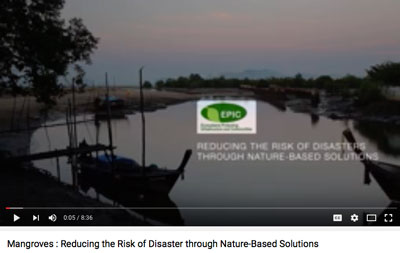 BACK TO TOP Not yet a subscriber? Click here to subscribe. Please cut and paste these news alerts/ action alerts on to your own lists and contacts. Help us spread the word and further generate letters of concern, as this can make a big difference in helping to halt a wrongdoing or encourage correct action.
|
Action Alerts:MANGROVE ACTION DAY IS JULY 21
|
Mangrove Action ProjectClick here to view past newsletters |
|
Subscribe to:
Posts (Atom)
-
The community of adults and youth in Cayman Islands has come together recently to release a series of educational videos. Each is geared to...
-
By Alfredo Quarto, Program & Policy Director Co-founder, MAP There is a rather urgent situation concerning the bio-invasion of the Son...
-
By: Isabel Robinson, MAP Volunteer Intern Some months ago I decided to come to Thailand and do an internship in mangrove conservation, ...
MAP News Issue #596 = April 20, 2024
ENTRIES NOW OPEN! Mangrove Photography Awards 2024 10 Years Celebrating Mangroves GLOBAL - MAP has launched our 10th Mangrove Photograp...


